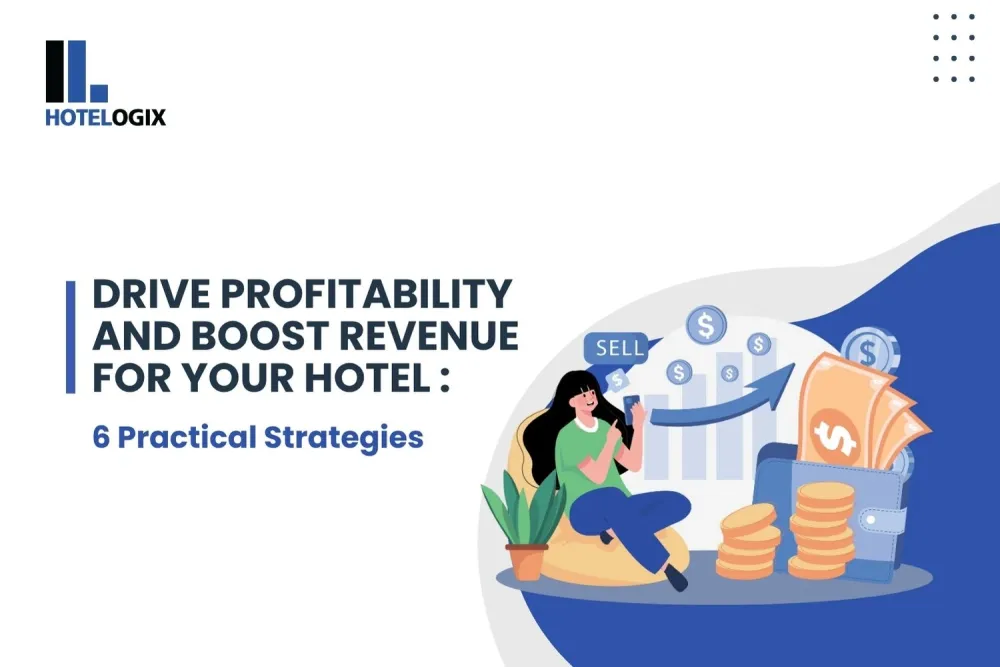The hotel occupancy rate for 2019 averaged between 80% and 64% globally. However, due to the global pandemic and consecutive lockdowns, 2020 saw a huge dip in these averages values. In fact, one statistic revealed that throughout Africa and the Middle East the reported average was in the mid-to-high sixty percentile. But these numbers were hardly consistent worldwide. In a few regions, during the early lockdown periods, occupancy rates dipped well below 50%.
These percentages may seem intimidating but experienced hoteliers know that they do not reflect the actual number of rooms booked. Hoteliers with small, independent properties with 20 to 150 rooms recognize that this data consists of larger hotel chains with 200 rooms on every property. Therefore, it is important to remember these insights cannot be the only metrics for decision making. Moreover, these values do not correspond to the absolute revenue outcome of each arriving guest.
Hotel revenue management is the process of capturing data to optimize hotel pricing. In this online world where services like OTAs offer features like dynamic pricing, revenue management needs to be a priority for every hotelier.
Revenue Management Is The Need Of The Hour
Your pricing strategy depends on the competitors in your market. In order to ensure a successful revenue management strategy, you will first need to set up a pricing strategy. Competitor research using tools that report comparable pricing can be a good starting point. Hotels with larger inventories may have the resources to run an elaborate competitor analysis. But even as a small player, it is important to invest your time and resources in finding the right tools to overcome this challenge. The good news is that you can do a lot more with the right PMS system – primary research, data entry, analytics, and price management across various OTA channels.
Hotelogix’s hospitality consultants have put together some useful hotel revenue management tips that will support your hotel’s financial recovery.
1. Learn about Automation
From automated chat messages on social media to reminders, the use of machine learning and artificial intelligence is key to your hotel’s success. Learning about automation will help you gather the necessary data and develop ways to effectively automate boring monotonous tasks. This will help you operate smoothly while cutting down on costs.
2. Invest in Cloud-based Solutions
Having a cloud-based system in the hospitality industry offers flexibility to run your hotel from any place using any device. When compared to the old school legacy system, a cloud-based solution is more accurate and constantly evolving as per the needs of hoteliers.
3. Find a Flexible Integration Partner
A web booking engine, a channel manager, and a Property Management System are all basic necessary tools for the modern hotel operator. A flexible integration partner prevents overbooking, helps to make maintenance easier and manages housekeeping all in one place. It tracks competitive pricing thereby leading to improved revenues.
4. Use Dynamic Pricing
Real-time data and dynamic pricing can help you optimize your hotel’s occupancy rates. Ditch the old-fashioned way of bargaining with your guests and use a data-driven approach to pricing your vacant rooms.
5. Analyze your Data
Revenue Management is dependent on a variety of factors. To make an informed decision, you will need to first collect and then evaluate all of the data available from various channels. Analyzing real-time trends may seem like a specialist’s job but the right PMS empowers every hotelier to get more from their guest’s data.
6. Customize and Personalize
Hotel trends point more and more towards guests’ experiences as a key to success. The ability to keep easy to read notes about guest preferences, and offering them personalized services is possible through a PMS. This will lead to repeat bookings and improved bottom lines.
Enabling booking through Facebook, optimizing your website and enticing visitors with freebies or upgrades if they book through the site’s WBE, and creating a loyalty program will all work to improve direct bookings.
Optimizing your website and incorporating that WBE into it, as well as establishing a solid presence on metasearch engines are also proven methods of boosting website visits and bookings.
How a PMS Can Support Hotel Revenue Management
There are many options for revenue management software for small hotels, but to make the most of these hotel revenue management tips, it is important to know which factors add up to the optimal hotel revenue management systems, too.
When considering a strategy for hospitality revenue management, owners and operators can begin by narrowing down options to only those that integrate a PMS and revenue management. Why limit the options? As noted, it was only when an RM used intense scrutiny of data that the right kinds of changes were made. Imagine seeing 50% increases just by using an RM? That is possible!
As a simple illustration: The hotel that uses a PMS can track market data around rack prices, seasonal discounting, or average room rates and adjust their own rates unilaterally through the channel manager in the PMS. This updates its inventory and pricing across the entire internet and makes them hyper-competitive.
It does not do so in days but in minutes. There is no clunky spreadsheet and no need for someone to spend hours manually adjusting prices. The right PMS can make these adjustments instantly, boosting the competitive edge of even the smallest player.




